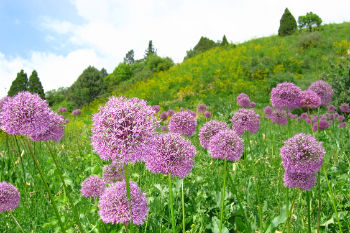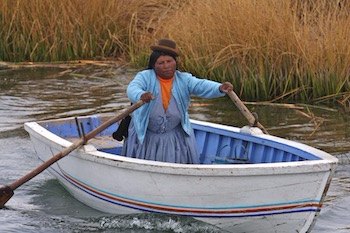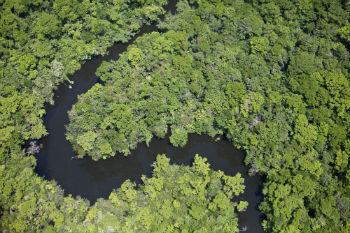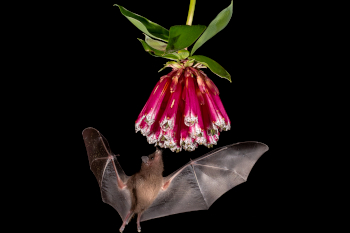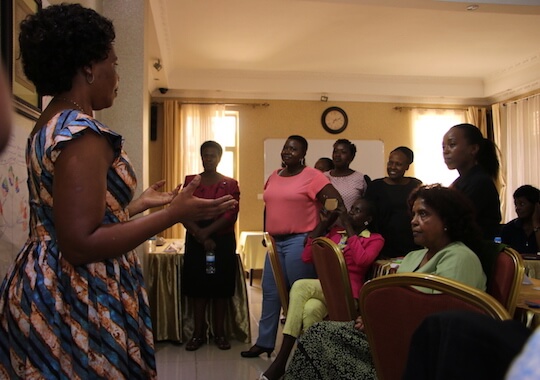Main menu
CEPF is a joint initiative of l’Agence Française de Développement, Conservation International, the European Union, Fondation Hans Wilsdorf, the Global Environment Facility, the Government of Canada, the Government of Japan and the World Bank. A fundamental goal is to ensure civil society is engaged in biodiversity conservation.
Visitez le site français コア情報の日本語翻訳を読むOr use Google Translate to translate the English site to your language:
GTranslate
Including Women in the Conservation Conversation
Four CEPF grantees working to close the gender gap
08 March 2018
08 March 2018
Women are an important—but often overlooked—part of the solution to protecting Earth's biodiversity. Many CEPF grantees are working to change that through women-focused projects. To celebrate International Women's Day on 8 March, we highlighted a few.
Promoting Women in Leadership
Women conservation leaders came together last March in Kigali, Rwanda, for a four-day training organized by Fauna & Flora International, with support from CEPF. Participants hailed from Rwanda, Kenya, Tanzania, South Sudan, Uganda, Zambia, the Democratic Republic of Congo, Zimbabwe and Ethiopia.
During the event, the group shared their personal experiences, identified gender gaps in conservation activities and discussed ways to promote gender equality in the conservation field. They developed more than 50 practical ways to actively support women in overcoming the barriers they face to equal participation in conservation.
"I'm feeling like I can fly right now," Fadzai Matsvimbo from BirdLife Zimbabwe said at the end of the training. "I've really been inspired, having all these talented and great women around me this week."
See more Eastern Afromontane CEPF-funded projects
Women Educating Women About the Importance of Mangroves
In Nigeria, women are on the frontlines of protecting local mangrove forests facing extinction from decades of degradation. CEPF grantee the Society for Women and Vulnerable Groups (SWOWUGE) is helping five villages in the Ukpom Okom District restore and manage their mangrove forests. They place particular emphasis on educating other women.
Christiana Akpan, the leader of a women's group from the Ikot Etegne community, attended a workshop organized by SWOWUGE. "I did not know, until now, that felling of mangroves indiscriminately could damage resources if trees are not planted to replace the felled ones," she said.
More than 330 women have been reached through the organization's efforts. Since the project began in June, more than 400 trees have been planted in key areas and 600 more have been earmarked for distribution to women as part of efforts to promote agro-forestry.
"Nigeria has no gazetted mangrove protected areas. Apart from this ongoing project, there has been no internationally supported women-driven project on mangrove restoration in the country," said Emem Umoh, coordinator of the project.
In May, a paper about the project will be presented to stakeholders at a biodiversity conference in Nigeria.
See more Guinean Forests of West Africa CEPF-funded projects
Strengthening a Women's Network in Thailand
"In Ing River Basin in Northern Thailand, many women, women's groups and women's networks play important roles in environmental conservation, but their roles and importance are not recognized," said Teerapong Pomun, director of Mekong Community Institute Association (MCI).
With help from a CEPF grant, MCI is improving management of the Ing River's natural resources and biodiversity by increasing involvement of members of the Ing Women's Network for Environmental Conservation. Since the first phase of the project began in July 2016 (phase two is currently underway), some 250 women have participated in the CEPF-funded project. Activities have included capacity-building through a field trip, a networking event, research (resulting in the publication of an online book), a seminar and short documentary films.
See more Indo-Burma CEPF-funded projects
Training Often-Overlooked Fisherwomen
In the Comoros Islands, CEPF grantee Blue Ventures Conservation, with local partner Dahari, is working to protect marine biodiversity while, at the same time, addressing the needs of nearby communities that depend on these resources.
The project is focused on two main fisheries, one of which is a reef gleaning fishery. Reef gleaning in the area—primarily collecting octopuses in shallow waters—is done almost exclusively by women. Blue Ventures is empowering these fisherwomen to self-organize and strengthen their collective capacity to better manage and protect marine resources. The women are being trained in association management skills and drying techniques, helping them increase opportunities to sell the octopus and fish they collect.
More than 90 percent of the community members that Blue Ventures has trained as catch monitoring technicians are women. In addition, the organization has begun supporting agriculture in these communities. They've targeted fisherwomen (who often also practice agriculture) as a strategy to improve incomes and provide a potential alternative livelihood to fishing.
See more Madagascar and Indian Ocean Islands CEPF-funded projects
